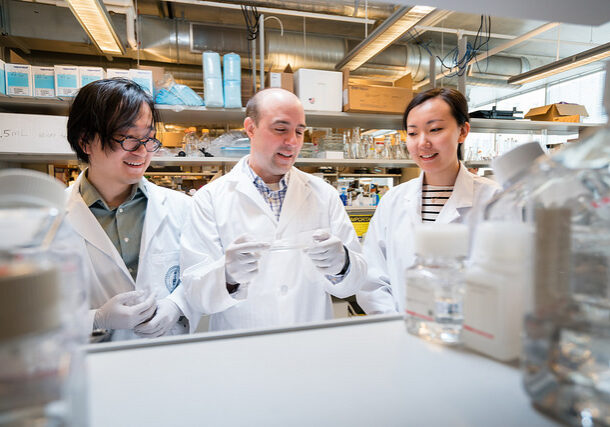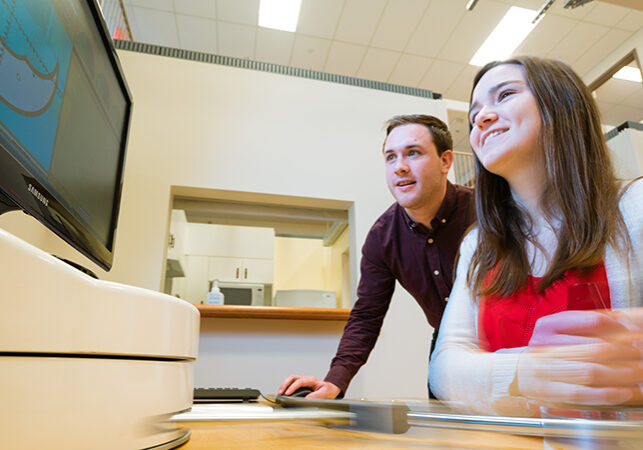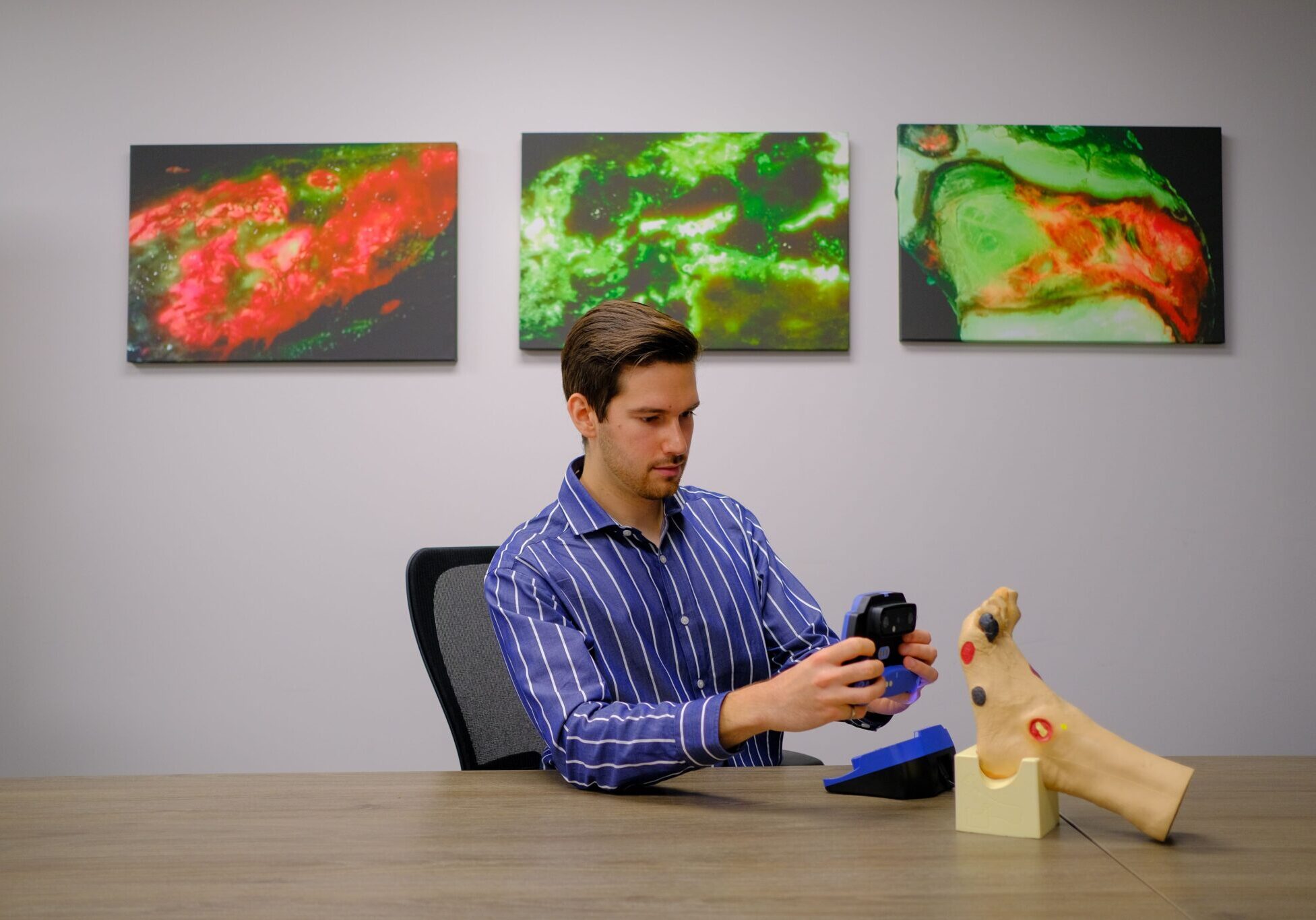Programs Overview
Overview
Are you a prospective student? Here at the Institute of Biomedical Engineering (BME), we connect researchers across the University of Toronto and its partner hospitals to develop innovative solutions to improve human health.
At the Institute of Biomedical Engineering (BME), we have 3 graduate programs and 2 undergraduate programs.
Graduate programs
Doctor of Philosophy
Research degree that exposes candidates to cutting-edge research in a laboratory
Master of Applied Science
Research degree that exposes candidates to cutting-edge research in a laboratory
Master of Engineering
Professional degree that exposes candidates to biomedical device design to commercialization
Graduate programs comparison
| Stream: | Research | Professional |
|---|---|---|
| Program: | PhD / MASc | MEng |
| Focus: | Research intensive training in a laboratory or clinical setting. | Training in biomedical device design, implementation, and commercialization. |
| Career Interests: | Individuals pursuing careers in academia, healthcare, government, or industry, who have a passion for research and development. • Motivated to conduct cutting-edge research • Passionate about academic collaboration and science communication • Keen on becoming key opinion leaders with distinct research specialization | Individuals interested in medical device production from design to implementation in human patients. • Seeking product design knowledge • Interested in learning entrepreneurship fundamentals • Eagar to gain real-world experience in the healthcare sector |
| Degree(s) Required: | Bachelor of Science, Bachelor of Engineering, Master of Applied Science (for PhD only), or Master of Engineering (PhD only). | Bachelor of Engineering or Bachelor of Science. |
| Outcome: | Program graduates excel as leaders in academia, industry, and government agencies across the globe. | Through work-integrated learning, graduates emerge as company founders, technology leaders, and start-up creators in the healthcare sector. |
| Program Length: | approx. 2 years (for MASc) or approx. 4 years (for PhD) | 1 year |
| Funding: | Unit-funded | Self-funded |
| Curricula: | • Coursework • Committee Meetings • Qualifying/Bypass Exam (for PhD) • Thesis • Defense • Final Oral Exam (for PhD) | • Coursework • Practical Experience |
Apply to graduate studies at BME
Undergraduate programs and opportunities
-
Year 1
Engineering Science (EngSci) program students learn fundamentals of different science disciplines and begin team-based design training through praxis courses.
Opportunities:
-
Year 4
Major students may focus on skill advancement and further knowledge and competencies through the completion of specialization courses, thesis, and design/capstone projects.
-
Year 1
Engineering students establish knowledge in math and applied & basic sciences.
-
Year 4
Minor students may focus on skill advancement in one of the three themes (mentioned above) toward becoming a specialist in their respective field.
Read more graduate student news & stories
Surgical navigation probe takes top prize in IBBME’s inaugural 2-minute video contest
From left to right: Nafiseh Rafiei; Amir Manbachi; Kiril Federov; Chris Yip; Amanda Khan The detailing of an ultrasonic surgical probe for spinal surgery navigation; transcription factories in cells; surgical […]
Building Open-Source Science with the DropBot
PhD Student Ryan Fobel Wires World Wide Community to New Digital Microfluidics Invention July 24, 2013 “When it doesn’t really exist anywhere you have to build your own,” explains Ryan […]
U of T Breakthrough Allows Fast, Reliable Pathogen Identification
June 12, 2013 | Engineering A U of T team – including researchers from Electrical and Computer Engineering and the Institute of Biomaterials & Biomedical Engineering – has created an electronic […]
A Discovery of Talent and Drive
Ontario Centres of Excellence Discovery conference places IBBME ingenuity 4 June, 2013 IBBME’s graduate students were in the spotlight at the recent Ontario Centres of Excellence (OCE) Discovery conference, held […]
Convocation 2013: five U of T health leaders to watch
June 4, 2013 | Lanna Crucefix As the class of 2013 graduates this June, U of T News looks at some of the students who will be changing health care and advancing […]
IBBME’s Annual Scientific Day Wows Students, Companies, with Professional Turn
Student professionalization takes top priority at career-oriented events 8 May, 2013 The Institute of Biomaterials & Biomedical Engineering (IBBME) lived up to its long-standing spring tradition with this year’s Scientific […]
Medicine Meets MacGyver
Biomedical Engineering Design Project Showcase is where science and medicine meet good, old-fashioned ingenuity 22 April 2013 A cheap and portable diagnostics device fashioned from your basic laser jet printer […]
Spreading the Word
PhD Candidates Nika Shakiba and David Lee spin the ethics and science of stem cells into a Canada-wide conversation 18 March 2013 What does a discussion among approximately 140 high […]
New IBBME-led Company SpineSonics Medical Inc. spins towards commercialization
Ultrasound surgical navigation tool becomes the premier product of the student-led company 12 March, 2013 An Ultrasound navigational probe to aid in spinal surgeries is the driving force behind a […]


